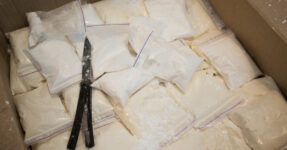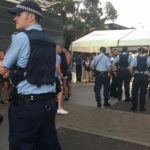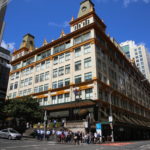The Offence of Supplying a Large Commercial Quantity of Prohibited Drugs in NSW

Two New South Wales men are facing charges for drug offences after police allegedly seized $12 million worth of crystal methamphetamine, or ‘ice’, and cocaine in Sydney’s South West over the weekend.
Police allege the two men were arrested during a vehicle stop, and that one of them attempted to flee across the freeway and hide in bushes before being located and apprehended. The man allegedly had 28 grams of cocaine in his pants.
Police claim to have found another 17 kilograms of white powder which they suspect to e cocaine and eight kilograms of methamphetamine inside the car. They estimate the street value of the substances to be about $9 million.
Following the arrest, police searched a unit in Kogarah and allegedly found prohibited drugs to the value of $3 million.
Men charged with large commercial supply
The 24-year old man who allegedly attempted to flee has been charged with six counts of supplying a large commercial quantity of a prohibited drug, knowingly dealing with the proceeds of crime, and escaping police custody.
The 23-year old man who remained at the vehicle has been charged with two counts of supplying a large commercial quantity of a prohibited drug.
Strike Force Garlow
The two men were arrested as part of the organised crime squad’s Strike Force Garlow, which was set up last month to investigate alleged drug-running operations in southwestern Sydney.
Police believe the men may be connected to a 65-year old man who was stopped and arrested last month.
When police searched the man’s ute, they allegedly found 30 kilograms of ice, 11 kilograms of MDMA, three kilograms of heroin and four kilograms of cocaine.
Police executed a search warrant in the Newcastle suburb of Stockton three days later, allegedly finding $450,000 in cash and more drugs.
South Coast Operation
Last week, Former NRL player Dylan Farrell was arrested in Nowra and charged with supplying a prohibited drug and participating in a criminal group after being pulled over while driving.
His arrest was part of ongoing investigations into the supply of cocaine on the South Coast of NSW.
Police say he is the third man charged as investigations continue.
Australia’s appetite for illicit substances is, along with New Zealand’s, amongst the highest in the OECD.
The most recent national drug survey results published in 2019 showed that use of cannabis, cocaine, ecstasy, inhalants, hallucinogens and ketamine had risen between 2016 and 2019, particularly amongst adults in their 40s (from 12% to 16% and 50s (from 6.7% to 13%).
Drug offences in New South Wales
The main piece of legislation in New South Wales which criminalises prohibited drugs is the Drug Misuse and Trafficking Act 1985 (‘the Act’).
The Act separates offences contained in the Act into two main categories:
- Summary offences – which are less-serious offences and are finalised in the Local Court.
These offences are contained in sections sections 10 to 18B of the Act, and include:
- Possessing prohibited drugs,
- Possessing equipment to administer prohibited drugs,
- Possessing a tablet press or pill encapsulator,
- Possessing instructions to produce or manufacture prohibited drugs,
- Forging prescriptions relating to prohibited drugs, and
- Obtaining prohibited drugs through false representations.
2. Indictable offences – these are more serious offences and may be referred to a higher court such as the District Court for finalisation.
Most of these offences are contained in sections sections 23 to 25A of the Act, and include:
- Cultivating prohibited plants,
- Manufacturing or producing prohibited drugs,
- Possessing apparatus for manufacturing or producing prohibited drugs,
- Possessing prohibited drug precursors,
- Supplying prohibited drugs, and
- Ongoing supply of prohibited drugs.
Strictly indictable offences are indictable offences that must be finalised in a higher court, they cannot be finalised in the Local Court. which must be finalised in a higher court.
Commercial drug supply
Supplying a commercial quantity or a large commercial quantity of prohibited drugs is a strictly indictable offence.
To establish the offence, the prosecution must prove beyond reasonable doubt that a person:
- Supplied, or knowingly took part in the supply of, a substance,
- That substance was a prohibited drug, and
- Knew, or believed at the time, that the substance was a prohibited drug
To ‘supply’ includes:
- To sell or distribute,
- To agree or offer to supply,
- To keep or possess for supply,
- To send, forward, deliver or receive for supply, or
- To authorise, direct, cause, suffer, permit or attempt any of the above.
Knowingly taking part in supply includes:
- Taking or participating in any step of the supply process, or causing any such step to be taken,
- Providing or arranging finance for any step in the supply process, or
- Providing the premises for any step in the supply process, or suffering or permitting any such step to be taken in a premises for which the person is the owner, lessee, occupier or manager.
What is a commercial quantity?
A commercial quantity of some of the most frequently prosecuted prohibited drugs includes:
- 125 grams of MDMA (‘ecstacy’)
- 250 grams of cocaine, amphetamines or heroin
- 25 kilograms of cannabis.
What is the maximum penalty for supplying a commercial quantity?
The maximum penalty for supplying a commercial quantity of prohibited drugs is 20 years in prison and/or 3500 penalty units, or 15 years and/or 3500 penalty units if the offence relates to cannabis.
What is a large commercial quantity?
A large commercial quantity of some of the most frequently prosecuted prohibited drugs includes:
- 500 grams of MDMA (‘ecstacy’)
- 1 kilogram of cocaine, amphetamines or heroin
- 100 kilograms of cannabis.
What is the maximum penalty for supplying a large commercial quantity?
The maximum penalty for supplying a large commercial quantity of prohibited drugs is life in prison and/or 5000 penalty units, or 20 years and/or 5000 penalty units if the offence relates to cannabis.
A penalty unit in New South Wales is currently $110.
Going to court for a drug offence?
If you or a loved-one has been charged with a drug offence, call Sydney Criminal Lawyers anytime on (02) 9261 8881 to arrange a consultation or prison visit with a member of our profession leading drug defence team.
Our Accredited Specialist Criminal Law Firm has an exceptional track record of having drug cases withdrawn or downgraded, or thrown out of court when cases proceed to Local Court Hearings and District and Supreme Court trials.








